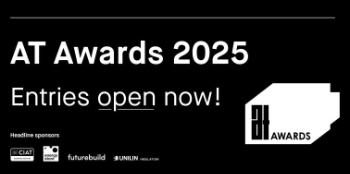Procuring Innovation – Leading practices from British Columbia
Published by the British Columbia Construction Association, this 80 page report is intended to help public and private owners become “innovation friendly” in their construction procurement – to enable them to access the potential environmental, economic and social benefits that innovative construction solutions can bring. It is also intended to guide architecture, engineering and construction firms as they set up their competitive response processes so they can bring their best to projects that push technical and logistical boundaries. Using examples of innovation in mass timber design and construction as a means to illustrate broader themes that can be applied to a wide range of building products and materials, this report explores how innovative solutions can best be encouraged within the many different stages and elements of construction procurement. Best practice models for Tenders and for Requests for Proposal (RFPs) are reviewed along with the various delivery models for their ability to encourage (or hinder) innovation. These include: Design-Bid-Build, Construction Management, Design-Build, Public Private Partnerships (P3s) and Single Purpose Entity for Integrated Project Delivery.
Procurement is an integral part of any construction project. It includes sourcing, purchasing, and all activities related to providing knowledge, manpower, construction equipment, materials, supplies, supervision, and management services necessary to accomplish the project objectives. The range of new ideas, products and processes that can be brought into construction projects is practically limitless so a focus on emerging wood technologies offers a manageable way to explore the complex process of procurement.
The role of owners and clients is central to the success of any project and their role in establishing clear requirements and performance targets is discussed. This includes the need to consider the full life-cycle cost of the project, not just the initial capital cost, sustainability goals and how to define “Quality” in the context of a fair, open and transparent procurement process. An innovative project will invariably bring a different risk profile, which needs to be understood and managed proactively. Assembling and nurturing an integrated, collaborative team is key to success and emerging techniques such as early market engagement, sanctioned design competitions, competitive dialogue and performance incentives are introduced. Numerous tools to facilitate innovative solutions are emerging such as virtual design and construction, offsite construction and project feedback loops that bring research problems from the field back to the lab in an organized manner. The report concludes with a checklist of best practices for both public and private owners.
This report was prepared for the BC Construction Association by Brantwood Consulting.
Lead author: Helen Goodland RIBA MBA
Contributors:
Jim Taggart FRAIC
Kevin Hanvey MAIBC AAA MRAIC, Omicron
Tyler Galbraith, Jenkins Marzban Logan, LLP
The original article was posted here
--Future of Construction 16:21, 15 Jun 2017 (BST)
Featured articles and news
The Architectural Technology Awards
The AT Awards 2025 are open for entries!
ECA Blueprint for Electrification
The 'mosaic of interconnected challenges' and how to deliver the UK’s Transition to Clean Power.
Grenfell Tower Principal Contractor Award notice
Tower repair and maintenance contractor announced as demolition contractor.
Passivhaus social homes benefit from heat pump service
Sixteen new homes designed and built to achieve Passivhaus constructed in Dumfries & Galloway.
CABE Publishes Results of 2025 Building Control Survey
Concern over lack of understanding of how roles have changed since the introduction of the BSA 2022.
British Architectural Sculpture 1851-1951
A rich heritage of decorative and figurative sculpture. Book review.
A programme to tackle the lack of diversity.
Independent Building Control review panel
Five members of the newly established, Grenfell Tower Inquiry recommended, panel appointed.
Welsh Recharging Electrical Skills Charter progresses
ECA progressing on the ‘asks’ of the Recharging Electrical Skills Charter at the Senedd in Wales.
A brief history from 1890s to 2020s.
CIOB and CORBON combine forces
To elevate professional standards in Nigeria’s construction industry.
Amendment to the GB Energy Bill welcomed by ECA
Move prevents nationally-owned energy company from investing in solar panels produced by modern slavery.
Gregor Harvie argues that AI is state-sanctioned theft of IP.
Heat pumps, vehicle chargers and heating appliances must be sold with smart functionality.
Experimental AI housing target help for councils
Experimental AI could help councils meet housing targets by digitising records.
New-style degrees set for reformed ARB accreditation
Following the ARB Tomorrow's Architects competency outcomes for Architects.
BSRIA Occupant Wellbeing survey BOW
Occupant satisfaction and wellbeing tool inc. physical environment, indoor facilities, functionality and accessibility.

























